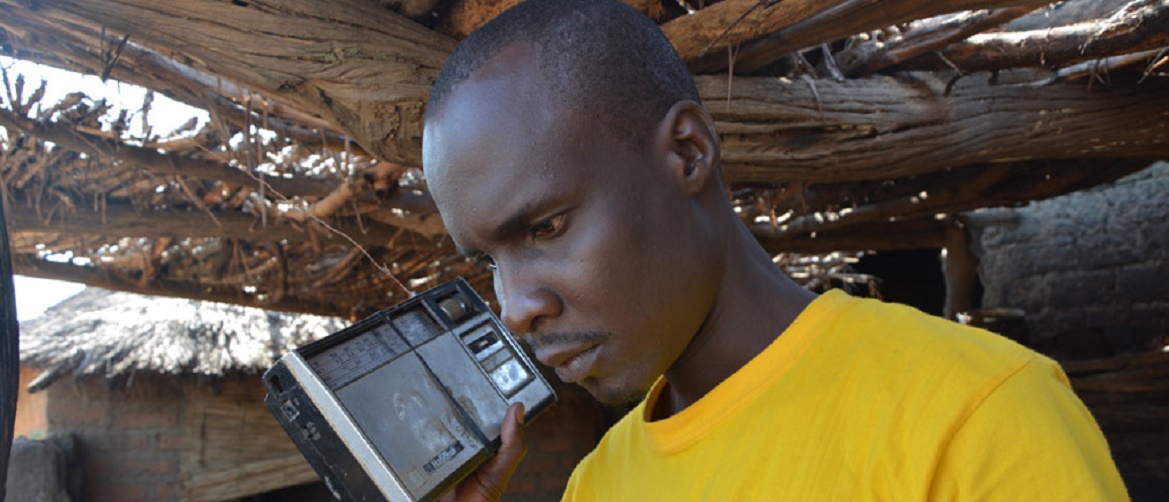>> Read full biography
Until the last century in Belgium, the word croquemort (lit. ‘corpse biter’) designated the gravediggers who, fearing to bury a person alive, used to bite the corpses’ little fingers in order to wake up those that only seemed to be dead. Inspired by this metaphor, Croquemort aims to awaken people and make them aware of injustice, denouncing the inequality and neglect that permeate Chadian society. It is Croquemort’s deep feeling for justice that pushes him towards a constant, tireless analysis of his society and the world beyond Chad’s borders.
Informed by the ideology of the pan-Africanist / Marxist writers of the French tradition (e.g. Aimé Césaire, Frantz Fanon) and by earlier fighters for freedom (e.g. Thomas Sankara, Patrice Lumumba),1 his songs tell us about his confrontation with Chadian reality, using slang and argot to give his message more power.
Chad is not an easy ground for Voices. The country is still facing the ghosts of a complicated and painful history that keeps stretching its tentacles on the present life of its citizens. And it is confronted with a succession of governments that did not invest in the real development of the country. Turmoils, divisions and civil wars have left a heavy heritage in the hearts of people: la peur, the fear that prevents them from raising their voices. This fear is one of the aspects of Chadian society that Croquemort criticizes the most. By raising his voice, he thus opens up a discussion on issues that are still silenced and tries to shake off the fear that obstructs a reflection on the past.
His compositions have developed from the hip-hop music of his youth to the genre of slam poetry. Slam is a genre of engaged urban poetry originating in Chicago in the 1990s. Historically related to jazz music and poetry, with a word rhythm quite close to rap and the social context it belongs to, slam quickly integrated into the hip-hop scene. New in Africa and especially in N’Djaména, this genre is growing rapidly. After beginning with hip-hop and rap, Croquemort chose the genre of slam poetry as his main form of expression, promoting it to the appreciation of the media and the wider public in Chad (Allahissem 2015)2. Combining slam poetry and political engagement, he has become one of the protagonists in the formation of a musical scene in Chad, a scene whose wings have been clipped by war and censorship since the country’s independence. The advancement of digital technology and of information and communication technologies (ICTs) has dramatically changed the scene. Producing music has become easier, while controlling voices has become more difficult.
The core of Croquemort’s texts criticizes inequality and demands civil rights, employing analytical prose/poetry that questions and mirrors. By addressing the conditions of people in their everyday lives, Croquemort wants to stimulate the Chadian public in regard to themes such as inequality, injustice, and the struggle for basic human rights.
>> Read about Croquemort’s political stance in music
>> Read about Croquemort’s international recognition and awards
>> Context: La peur
Notes
[1] On Lumumba and his impact on the youth in Chad, see Legendary Words, on Mirjam de Bruijn’s blog Counter Voices. See also: Memories of Lumumba; Victomhood and Redemption, by Meike de Goede.



